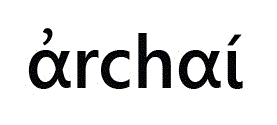Abstract:
The characterization of thought as a subject reflection about a given object is expressed by an enunciation of predicative order. The introduction of the possibility of a type of thought that it is not constituted in virtue of this presupposition brings a lot of difficulties, which is responsible for why Lloyd (1970) treats this theme as an enigma of Greek philosophy, i.e, non-discursive thinking. Plotinus seems to make a distinction between rational and intellectual thought, taking as a starting point the sui generis definition of a thinking that thinks itself. The intriguing nature of this description, i.e, the self-thinking as non-discursive thought, has raised studies with the primary aim to understand how it works this type of thinking. Then to clarify what does it mean to adopt the non-discursive approach. This paper intends to analyze the cited problem in the light of the “non-predicative” of Santos (2018). The hypothesis is that by applying this concept to the discussion it will contribute to increase clarification on the distinction between reason and Intellect. That exercise will be conducted in majority through the reading of V.3 [49] of Plotinus Enneads. The nature of the intellectual thought would be non-predicative and the rational would be predicative.
Keywords:
Plotinus;
Enneads
; Intellect; non-predicative
